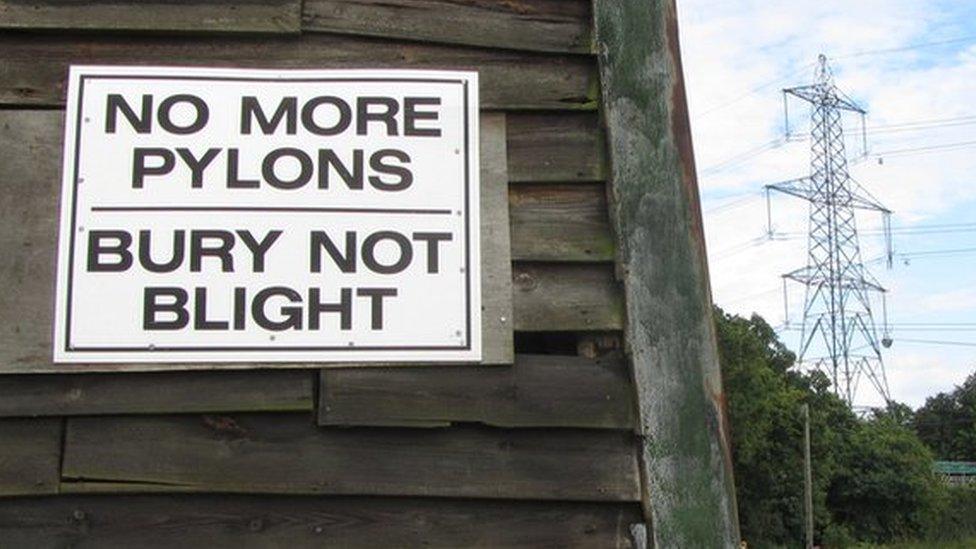Essex pylon corridor compensation plan 'insulting'
- Published
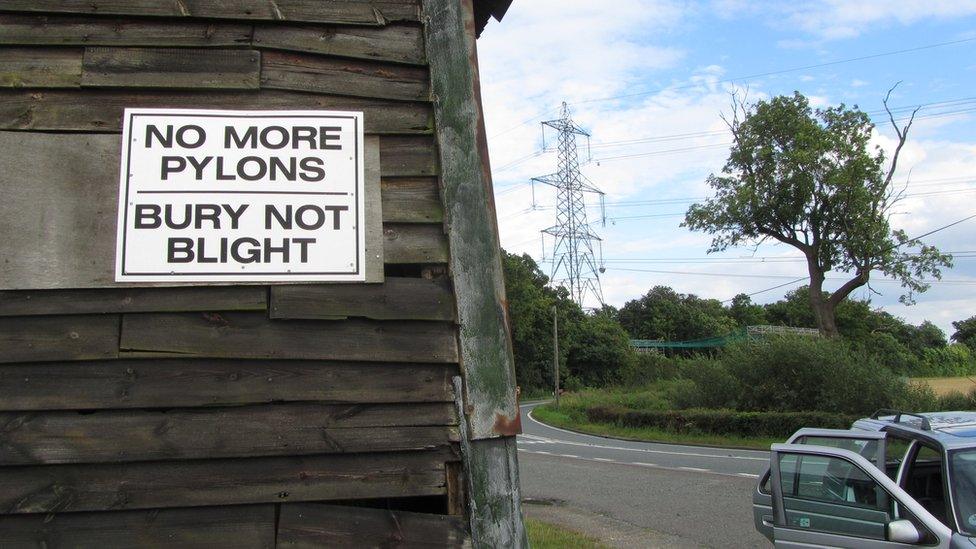
Local communities are calling for the National Grid to bury power lines along the whole route, or put the route out at sea
People who would live beneath or near a 113-mile corridor of electricity pylons through Essex, Suffolk and Norfolk say the chancellor's offer of compensation to affected communities is a "con" and a "bribe".
Jeremy Hunt said the project would boost "home-grown energy security". But many are unconvinced. The BBC spoke to residents and campaigners in the village of Fordham, Essex, which would have the giant structures running through it.
'We are all really insulted'

Rosie Pearson said people were "frustrated and angry" with the government and the National Grid
Rosie Pearson of campaign group Essex Suffolk Norfolk Pylons said the offer of up to £10,000 off energy bills for a decade for those affected by the "dinosaur technology" was not the way forward.
"We are all really insulted; it completely undermines what we are fighting for which is a better way of doing things," she said.
"[We need] an offshore grid which is cheaper, it's faster to implement, and it's less damaging to the environment.
"Government and the National Grid aren't listening to us. They know there's a better way and yet they want to fob us off with really small amounts of money to accept a really bad solution."
She accused National Grid of "arrogance" and said the government found it easier to "stick to the status quo" rather than invest in an offshore grid.
"We are lucky with the support of all our MPs, the councils, 27,000 people have signed a petition for an offshore grid, so there's huge frustration and anger.
"In East Anglia we use 8% of the power that is produced in the region - most of it goes to London and the South-East - so it's really unfair to see our area trashed when there is a better way of doing things."
'This will just be the start'
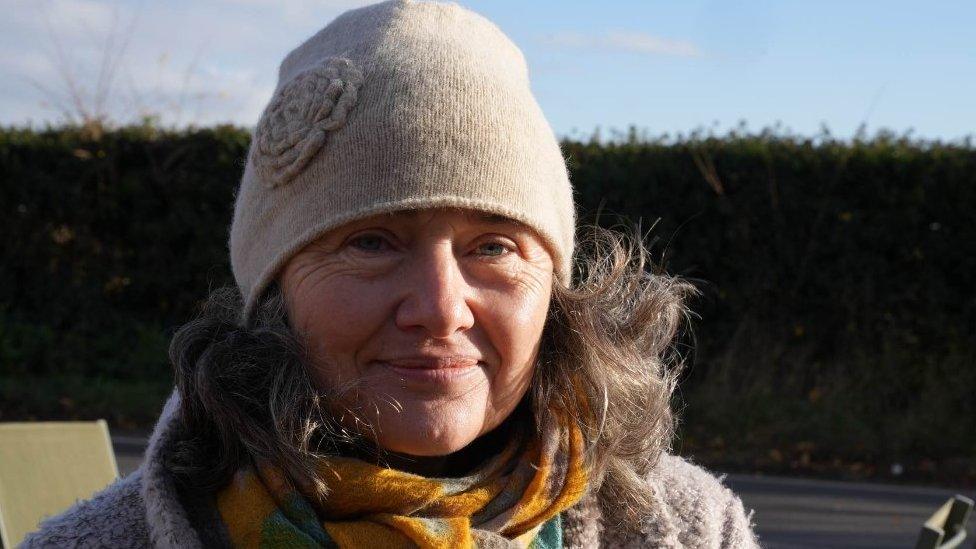
Anna Rule said she felt passionately that the scheme should not go ahead
Anna Rule grew up in Fordham, near Colchester, and still lives locally. She fears people are not aware of the wider impact of the pylons.
"It is much faster and cheaper to do this offshore, and environmentally it makes a big difference," she said.
"I think my fear is people look at this and think 'It's only people affected who are standing up, people with money.'
"But the reality is, if we have pylons, they will spread throughout the countryside and the devastation is huge.
"People will wake up when it's actually happening and will be horrified.
"This is such a beautiful place; I feel really passionately about it.
"I want people to get out there and stand up for nature, stand up for the countryside because this will just be the start.
"I want green energy but this isn't the solution."
'I think it's a bribe'
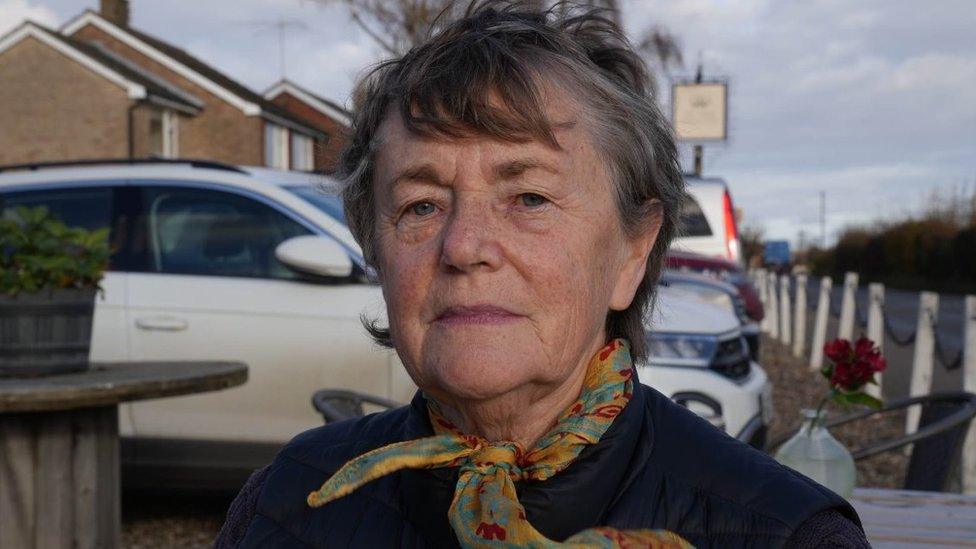
Linda Fisher said she was shocked when she first heard of the proposals
Linda Fisher, who has lived in Fordham for 45 years, said she was shocked when she received notice of the proposals.
"We wondered why we were using archaic technology when the cheaper option is to put it under the sea," she added.
"We have amazing views of the valley and the pylons will be within 100m (328ft) [of our garden]. I am not fighting it because I want it to be elsewhere; I wouldn't want anyone to be in that position.
"We have amazing wildfowl on the reservoir and we don't know how it will affect that."
Asked about the compensation, she said: "I think it's a bribe.
"Who is to say you are going to be close enough to get that £10,000?
"No doubt we will all be 1m [3ft] from the boundary."
A National Grid spokesman said: "We understand that plans for new infrastructure can cause concern in nearby communities, and we are giving careful consideration to environmental and community impacts, and to all the feedback we receive through our consultation processes.


The route would be put underground in the Dedham Vale/Stour Valley area of outstanding natural beauty on the Essex-Suffolk border
Analysis
By Andrew Sinclair, BBC East political editor
Energy infrastructure has now become one of the regular topics of conversation within government.
With a growing demand for cheaper, home-grown power, and dozens of offshore wind farms about to start generating electricity, there is an urgent need to increase capacity and speed up connections to the National Grid.
Which is why offering homeowners £1,000 a year off their energy bills if they live near new infrastructure was one of the headline announcements in this week's autumn statement.
Ministers accept that some people will be inconvenienced by the need for more pylons and substations and they want to see them compensated, not in a one-off way (such as giving them a new village hall or link road), but in a way that regularly thanks them.
The chancellor is also going to give financial rewards to councils that speed up their side of the planning application process.
In many places there have been some very vocal and heartfelt campaigns against new energy infrastructure. But the message from the government is that, while there may be a few tweaks to the plans, it needs to be built quickly, and the Labour Party agrees.
The outcome of the next election, due by the end of January 2025, may be uncertain, but for energy infrastructure the future seems pretty clear.

Follow East of England news on Facebook, external, Instagram, external and X, external. Got a story? Email eastofenglandnews@bbc.co.uk , externalor WhatsApp 0800 169 183
Related topics
- Published23 November 2023
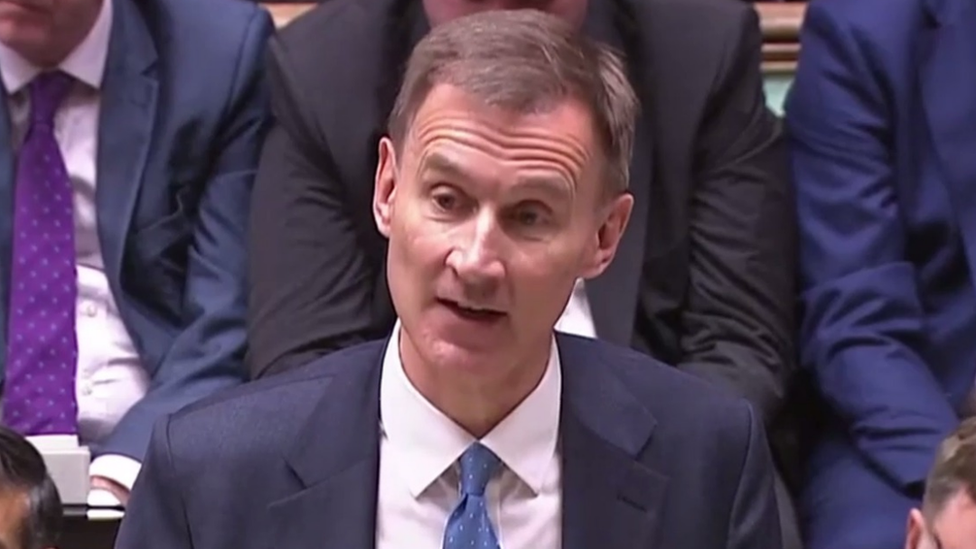
- Published21 November 2023

- Published30 September 2023

- Published27 June 2023
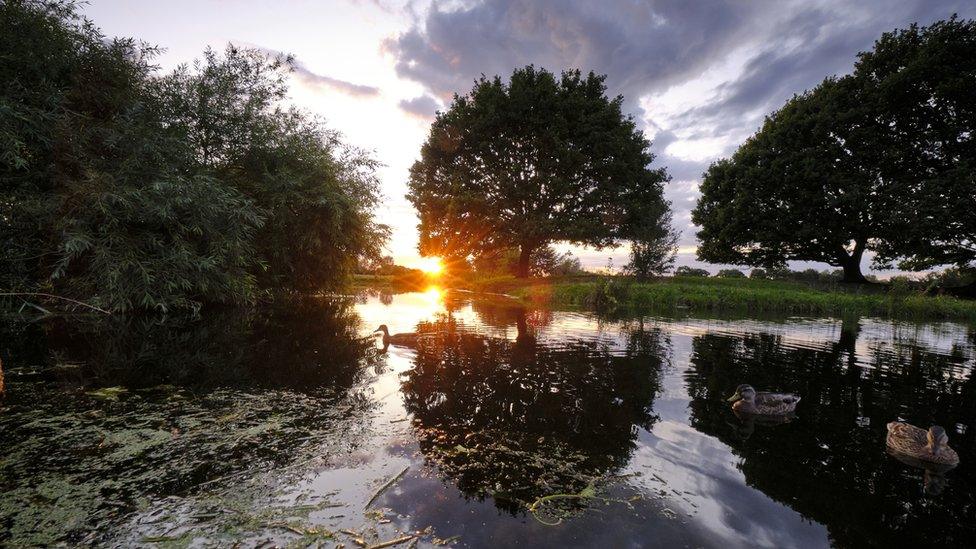
- Published8 June 2022
